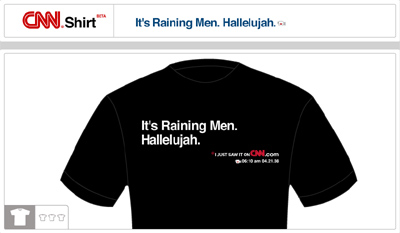In prior posts I have suggested simply retiring words or phrases because they are so frequently misused as seriously to call into question their value to convey meaning versus their tendency to invite misinterpretation.
Some words, however, cannot simply be cut from the roster. They represent worthwhile concepts and they are atomic, i.e., irreducible, i.e., they cannot be dumbed down any further, i.e., if you still don’t understand, then you would likely be happier if you stopped reading now. So it’s up to me to explain what these words mean and it’s up to you to get them right. Don’t feel bad. I hear people who pass for professional journalists botch these on a regular basis. They’re getting paid to write or talk and here I am asking you, a schmuck, to get them right for free.
Let us examine cynicism, pessimism and skepticism. Similar to socialism, communism and fascism, these words actually mean different things, feigned (I hope) ignorance of political candidates notwithstanding.
Cynicism
In modern usage, cynicism is the belief that people (especially public figures) are often motivated by self interest rather than by unselfish reasons such as the public good. So, given the following statement:
Political Candidate: If I am elected I will cut taxes on corporate earnings for businesses generating $3 billion or more in annual revenue. These job creators are the cornerstone of our economy and they are committed to fostering a strong middle class.
A cynic might ponder different underlying motivations such as:
Political Candidate: This tax cut will peg that portfolio sitting in my “blind trust”. Oh, and Steff Stockoptions, CEO of HalliBabyMulchCo, totally knows where that Poughkeepsie hooker we double stuffed that time is buried and lately all he does is bitch about how Elon Musk has a bigger summer yacht than he does.
Pessimism
Pessimism is probably the simplest of the set to understand, because pessimists are largely simpletons. They fixate on the worst aspects of a thing or anticipate that the worst outcome will be the one that occurs. Pessimists (similar to their optimist brethren) make for lousy statisticians. Given a 50/50 probability, a pessimist will expect the less attractive prospect to occur 95 percent of the time, which is probably why I find them so tiresome. Generally speaking, pessimists tend to shit all over everything while contributing little or grudging effort toward achieving the preferred outcome.
My experience is that while there is overlap between cynics and pessimists, a lot of cynics (myself included) self-identify as frustrated optimists. It’s funnier that way, because when people’s slavish devotion to their baser impulses is inevitably revealed, the fresh sting and accompanying bitterness felt by the cynic are all the more poignant.
Skepticism
The most neutral of the bunch. All that skeptics demand is evidence, regardless of the popular credence around a topic. They can, however, be a snarky lot.
Credulous Rube: Homeopathy is medically beneficial.
Skeptic: Prove it. And, like Tim Minchin observed, please explain, “whilst [water’s] memory of a long lost drop of onion juice is infinite, it somehow forgets all the poo it’s had in it.”
Credulous Rube: The Zika virus was sent by God to punish promiscuity.
Skeptic: Wow, that would make this God fellow a monster, wouldn’t it? Since all bets are off the moment that anyone invokes the supernatural into rational discourse, I won’t ask you to prove anything. But I would like to know what you recommend doing in light of the stated cause (this God monster of yours). It doesn’t seem right for us to pursue treatment or prevention options on account of the wrath and the punishment and all. It feels too much like arguing with a judge after the verdict. Shall we simply wail?
Credulous Rube: Vaccines cause autism.
Skeptic: Prove it. Wait, instead how about you jump up your own ass and die for spreading dangerous misinformation with zero basis in fact to the other credulous rubes, putting at risk the children from whom immunization was withheld in addition to the most frail members of our society. Why not take a day off from propagating this garbage and go to Disneyland? Your contribution to public health is like pantyhose’s contribution to finger banging.
Credulous Rube: The ‘69 Moon landing was faked.
Skeptic: Actually, that one is true. But the set where they shot it was on Mars.
Credulous Rube: Really?
Skeptic: Really!
Credulous Rube: Prove it.








